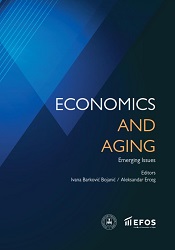Micronutrient Deficiency in the Elderly and Benefits of Investment in Nutritional Supplements
Micronutrient Deficiency in the Elderly and Benefits of Investment in Nutritional Supplements
Author(s): Tatjana Bačun, Ivan Lekić, Barbara Bačun
Subject(s): Health and medicine and law, Gerontology
Published by: Sveučilište Josipa Jurja Strossmayera u Osijeku, Ekonomski fakultet u Osijeku
Keywords: aging; nutrition therapy; dietary supplements; vitamins; minerals;
Summary/Abstract: Inadequate food intake in the elderly can result from physiological, psychological, social, or pathological nature and their combination. People who have reduced appetite, difficulty swallowing, refuse food, have muscle atrophy, or lose weight need to be monitored for body weight, diet and appetite assessment, and processing that includes medical history, physical examination, and essential laboratory findings (complete blood count, primary biochemical findings, and thyroid hormones). Additional processing depends on the initial assessment and may include endoscopic processing of the digestive system and imaging. Treatment should focus on the underlying cause and proper nutrition and dietary control. A common cause of inadequate food intake and micronutrient deficiencies are associated diseases, the most common being depression, followed by cancer. Vitamin D and vitamin B12 deficiency are common in the elderly and based on clinical research, a supplement of 600 to 800 IU of vitamin D per day with 1200 mg found in food, and supplements of vitamin B12 10 to 15 mcg (people with malabsorption of 1000 mcg per day) is recommended. There is no substantial evidence for reducing the incidence of infections in frail elderly adults or preventing chronic disease by adding multivitamins and minerals. A 20-year follow-up study found that adding daily multivitamins was associated with a slight increase in overall mortality. Consequently, in the elderly, it is necessary to assess nutritional status, and if insufficient food intake is suspected, conducting nutrition education, assess the need for vitamin D, calcium, vitamin B12, and other micronutrients, and according to the assessment and monitoring of nutrition, enteral nutrition, and additional processing.
Book: Economics and Aging: Emerging Issues
- Page Range: 151-167
- Page Count: 17
- Publication Year: 2022
- Language: English
- Content File-PDF

